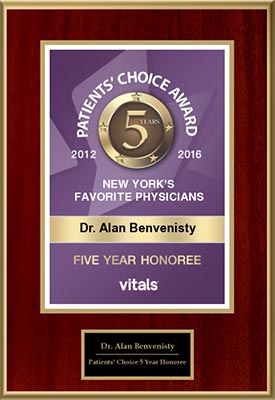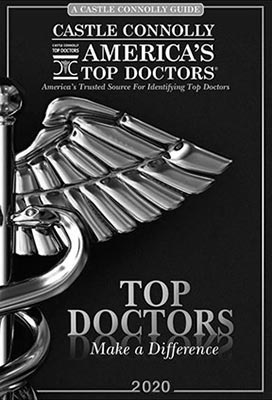Carotid Endarterectomy
With the primary goal of preventing stroke, carotid endarterectomy is a surgical procedure that involves opening or cleaning the carotid artery. Often recommended by vascular surgeons, this procedure is typically suggested when patients have a moderate blockage or stenosis of the carotid artery (50-79%) and are experiencing symptoms associated with a stroke or TIA (transient ischemic attack, or mini stroke). Even so, for patients with an arterial blockage of 80%, a carotid endarterectomy may be recommended even if symptoms are not present.
While carotid endarterectomy is an effective surgical procedure for appropriate cases, it is important to understand that blockages can develop again. Thus, other treatment options including medical therapy (anticoagulants, antiplatelets and statins) may be prescribed to treat carotid artery disease. In turn, preventative measures and lifestyle changes may be suggested to minimize the risk of developing or worsening carotid artery disease. Some examples include:
- Quitting smoking
- Reducing high cholesterol
- Lowering blood pressure
- Maintaining a healthy body weight
- Healthy diet
- Physical activity
When it comes to arterial and vascular disease, a combined approach is often best. As a prominent New York City general and vascular surgeon, Dr. Alan Benvenisty maintains an interest in non-surgical and non-invasive treatment of carotid artery disease and strives to avoid surgery whenever possible. Dr. Benvenisty’s commitment to treating patients as individuals is one reason for his continued success as an esteemed vascular specialist. To schedule a private consultation with Dr. Benvenisty, patients are encouraged to contact his office on Amsterdam Avenue today.
Carotid Endarterectomy and Carotid Artery Stenting
As a conventional procedure to remove plaque (fatty deposits) from narrowed carotid arteries (carotid stenosis), a carotid endarterectomy procedure can stop the occurrence of mini strokes and other stroke-related symptoms as well as prevent a major stroke.
To better understand, consider the two carotid arteries on each side of the neck. Each artery divides into internal and external carotid arteries. While the internal carotid arteries provide oxygenated blood to the brain, the external carotid arteries provide oxygenated blood to the neck, face and scalp. A blockage in any area of the carotid artery inhibits or stops blood flow to the corresponding areas and can result in a “brain attack,” or stroke. When blood supply is completely cut off, it only takes a few minutes for vital brain tissues to die. As a result, individuals may experience permanent brain damage or disability.
When blockages are detected (with or without symptoms), carotid endarterectomy is sometimes recommended. The procedure involves a cervical incision to expose the blocked carotid artery. The artery is cut open and the wax-like substance, or plaque, is removed. In some cases, a temporary tube may be inserted to restore the flow of blood while fatty deposits are removed and the artery is cleaned.
Carotid artery stenting (also called carotid angioplasty), an alternative to carotid endarterectomy, is sometimes suggested for patients with narrowing (stenosis) of the carotid artery greater than 60-70%. In turn, it is a valid option for those with a low risk of serious complications from stenting. Carotid stenting involves inserting a catheter into the large artery near the groin (femoral artery). The catheter is guided through other arteries until it reaches the carotid artery. Once the narrowed portion of the artery is detected, a balloon is placed inside the stent and expanded to open the artery. The stent remains in place while the balloon is deflated and removed. With time, the lining of the blood vessel will adhere to the stent, providing stability. Stenting is a suitable option for preventing the break-off of small bits of plaque within the carotid artery that may cause stroke. In addition, there is no need for general anesthesia, no incision and no risk for cranial nerve damage.
It’s important to note that while carotid endarterectomy and carotid stenting may be used as preventative measures to lower the risk of stroke, medication and changes to one’s lifestyle may work just as well to avoid build-up of plaque and carotid stenosis, or blockage.
Dr. Alan I. Benvenisty is a highly respected general and vascular surgeon in New York City with a particular expertise in vascular diagnosis as well as surgical and non-surgical treatments for carotid artery disease and other vascular-type conditions. While Dr. Benvenisty is fully equipped to perform surgery for even the most complex and technically challenging arterial blockages, he values non-surgical, minimally invasive means of treatment whenever possible. With a commitment to providing conservative and conscientious patient care, it’s easy to see why many seek Dr. Benvenisty’s expertise for their vascular conditions. To schedule an appointment with Dr. Benvenisty, contact our Amsterdam Avenue office in New York City today.






